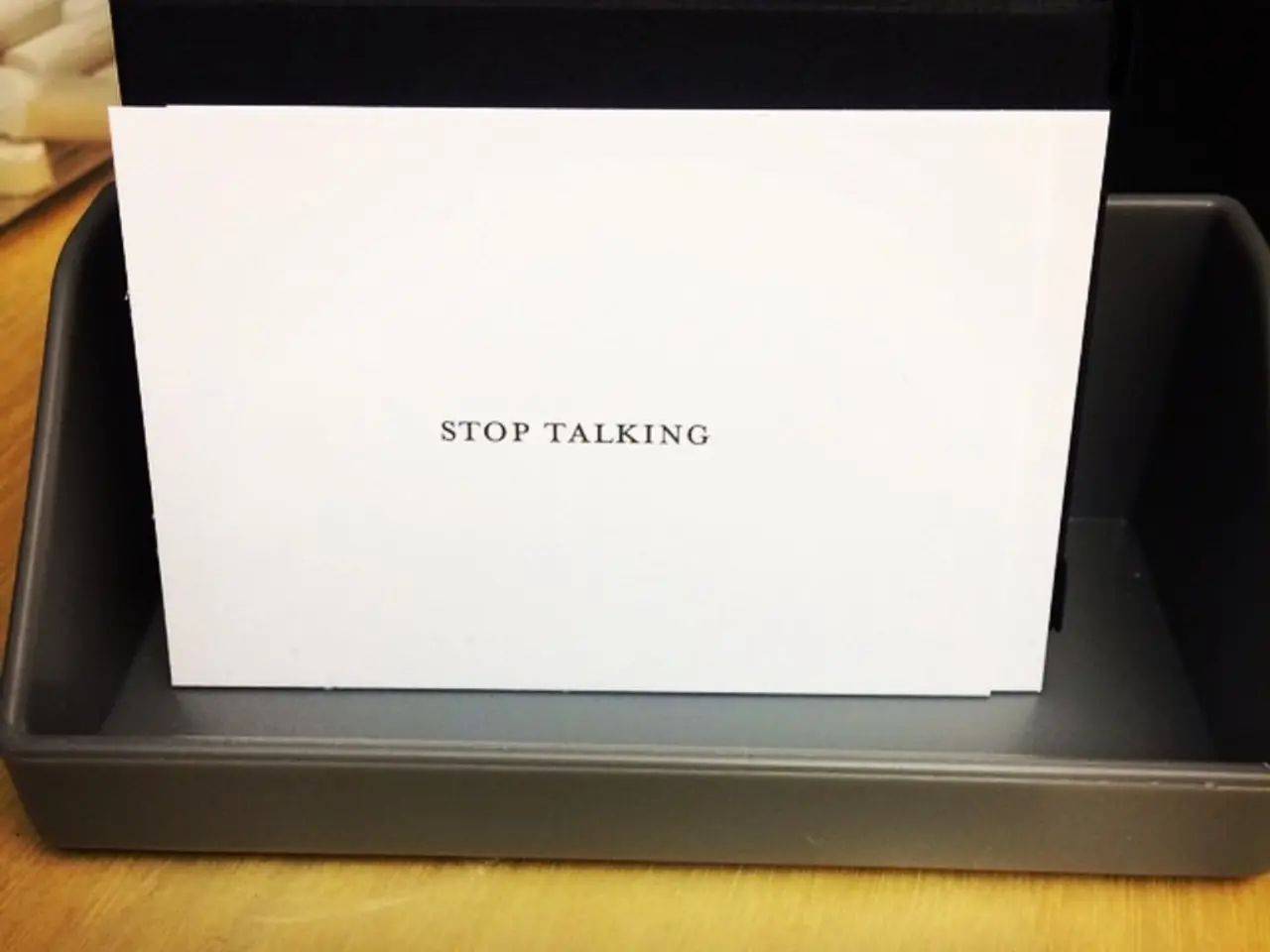Persistent Busyness Impairs Cognitive Functioning, Researchers Suggest Permanently
=================================================================================
In today's fast-paced world, it's easy to get caught up in the whirlwind of constant activity. However, a growing body of evidence suggests that this relentless busyness may be doing more harm than good, particularly when it comes to our mental health and cognitive function.
The attention economy, driven by companies selling our attention to advertisers, has created a business model that encourages addictive behaviour. This constant stimulation, provided by our phones and other digital devices, prevents our brains from slipping into its restorative default mode, which is crucial for memory consolidation, creative problem-solving, and emotional regulation.
Embracing periods of idleness isn't just about improving daily productivity; it's about safeguarding our long-term mental health. Neuroscientist Daniel Levitin suggests that simple activities like meditating, staring into space, or daydreaming allow the brain to reset. When one is constantly busy, the brain operates in survival mode, focusing on immediate tasks and urgent problems, leaving no mental bandwidth for the kind of loose, exploratory thinking that leads to creative breakthroughs.
Constant busyness has been linked to higher rates of burnout, anxiety, and even physical illnesses like hypertension and heart disease. Moreover, it fundamentally changes how we relate to other people, eroding the quality of connections with others due to partial presence. Social media creates a toxic comparison dynamic, fueling the busyness epidemic by making people feel inadequate if they're not constantly achieving, creating, and sharing.
Innovation emerges from a relaxed, open state of mind that allows seemingly unrelated ideas to connect in new ways. Some of the world's most groundbreaking innovations came to people when they weren't trying to innovate at all, suggesting that creativity doesn't happen when one is frantically busy and stressed.
Strategies to break this cycle include recognizing signs of burnout early, scheduling structured breaks and time for mental reset, modifying work environments and tasks to align better with one’s neurology, challenging the glorification of nonstop work, and incorporating habits associated with sustained cognitive health. Building boundaries is essential for maintaining mental health and cognitive abilities, including setting boundaries with technology, other people, and creating physical spaces free from work materials and digital devices.
Single-tasking can lead to a flow state, a condition of effortless concentration where performance peaks and time seems to disappear. Real relationships are built in the quiet moments, which become increasingly rare in a life dominated by constant activity. Excessive multitasking, often fueled by digital distractions, can lower productivity by as much as 40%.
The modern approach to sleep is backwards, treating it as time lost rather than time invested. Quality sleep is essential for cognitive abilities, memory, decision-making, emotional regulation, and mental clarity. Poor sleep quality can create a vicious cycle with busyness, making tasks more challenging and requiring more effort and time.
In conclusion, constant busyness negatively affects cognitive abilities and mental health. By recognizing the signs, setting boundaries, and prioritizing rest, we can counteract these detrimental effects and foster sustainable productivity.
- In the workplace, integrating technology such as smartphones should be balanced with promoting workplace-wellness initiatives that prioritize health-and-wellness, including mental health, to counteract the negative effects of constant busyness on employees' cognitive function and mental well-being.
- To foster innovation and creative problem-solving, science suggests that embracing periods of idleness, like daydreaming or meditating, can help create a relaxed, open state of mind that allows seemingly unrelated ideas to connect in new ways, thereby leading to groundbreaking innovations.
- Building physical and digital boundaries, such as setting aside technology-free zones and designated time for mental reset, is crucial in breaking the cycle of constant busyness, as it can lead to a flow state, improved cognitive abilities, quality sleep, and better overall mental health.




